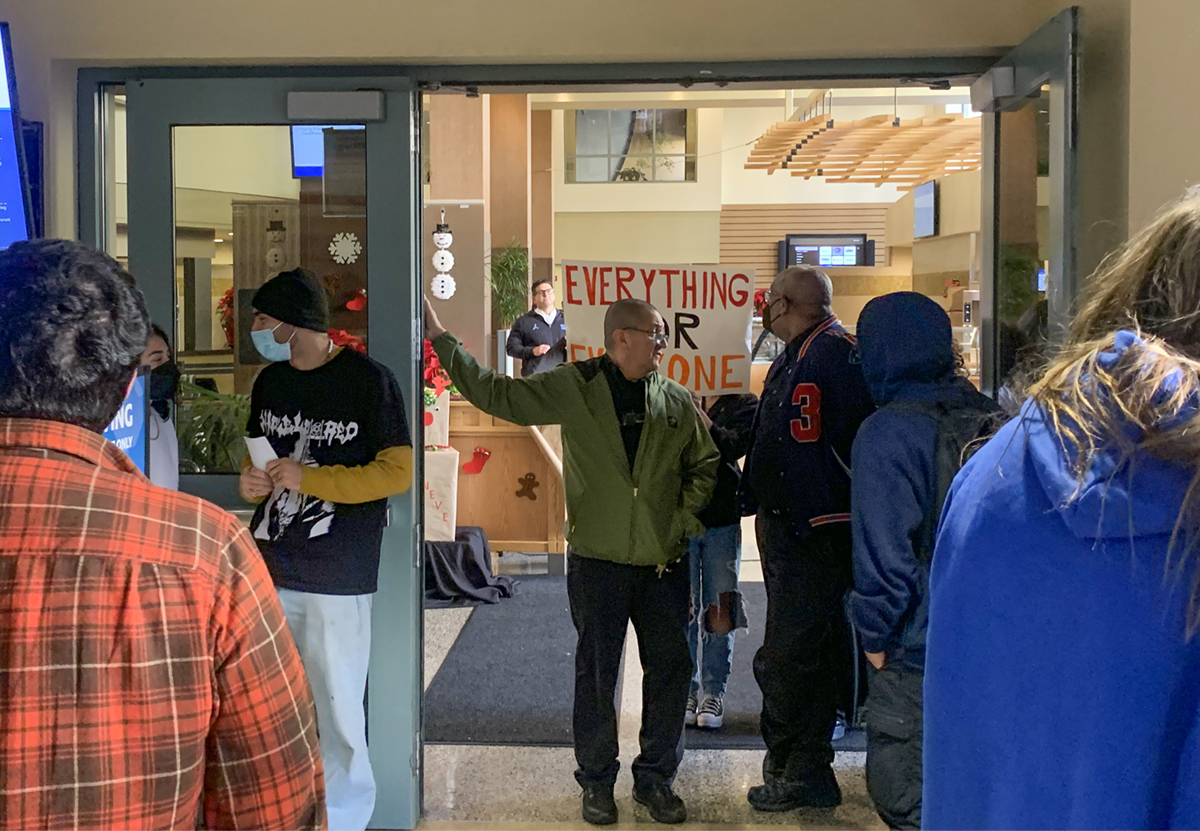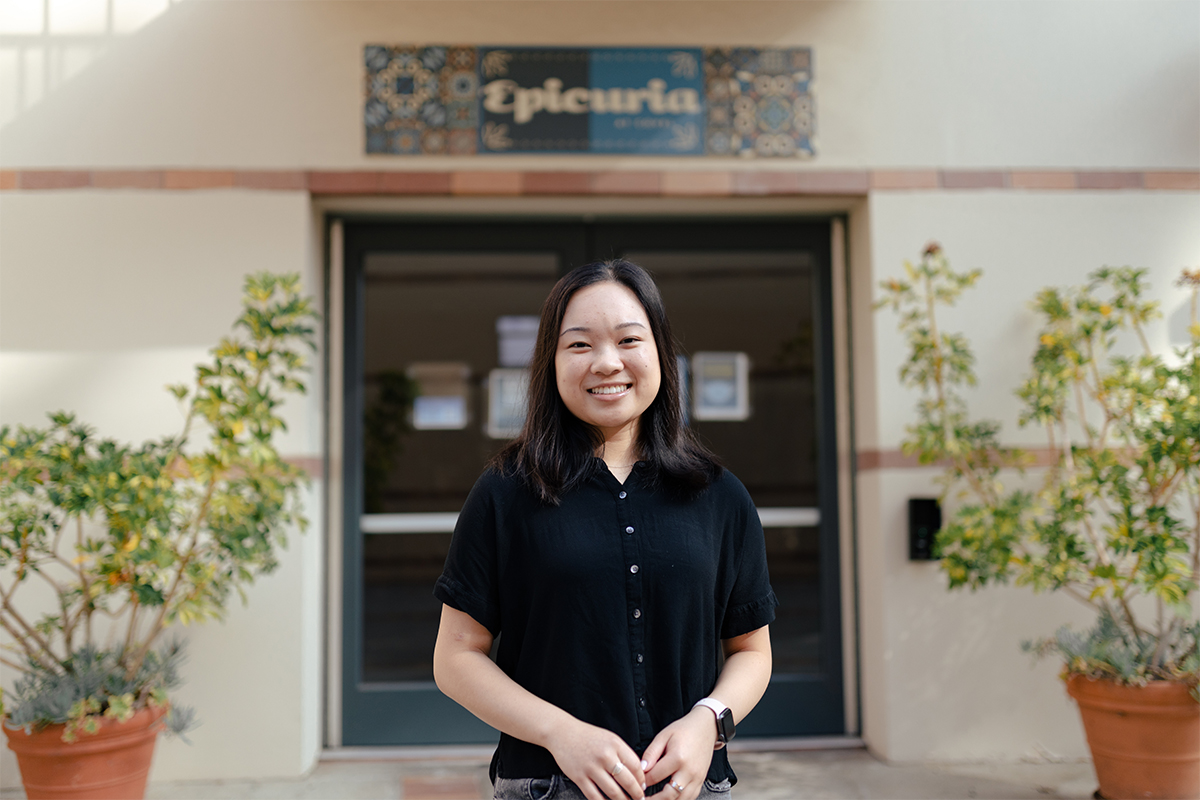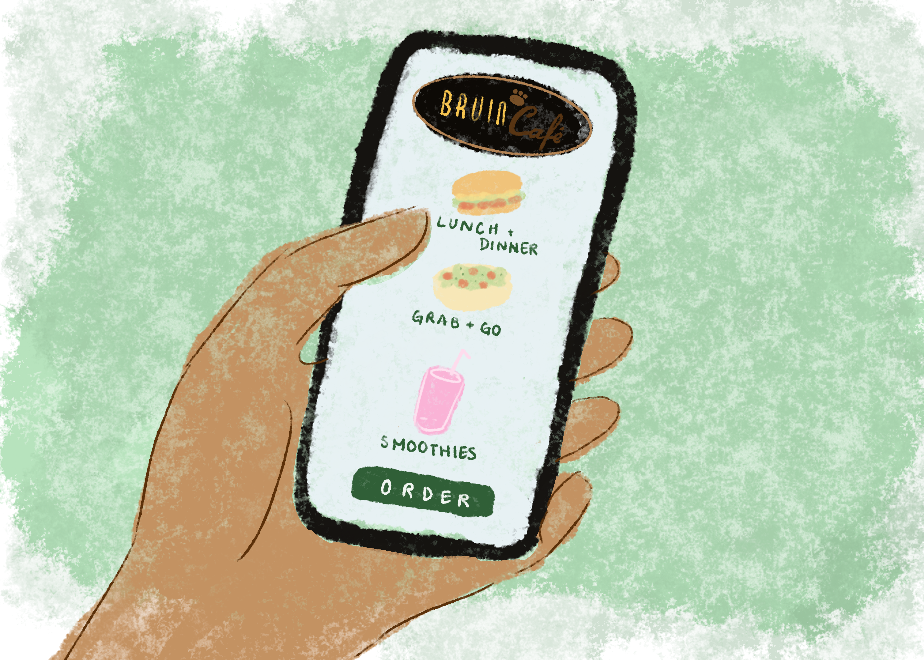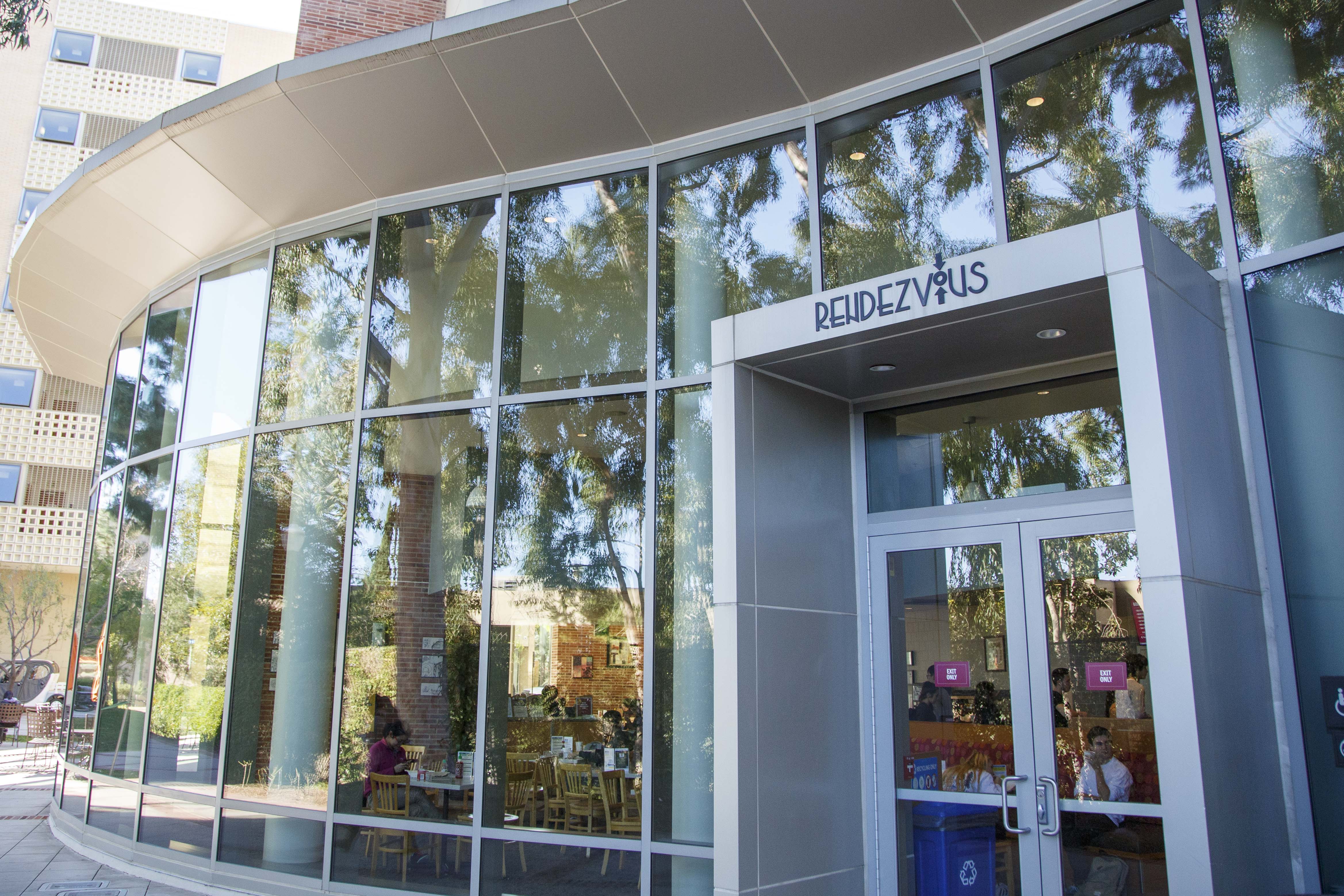UCLA admin to end dining hall restriction for overdue fees
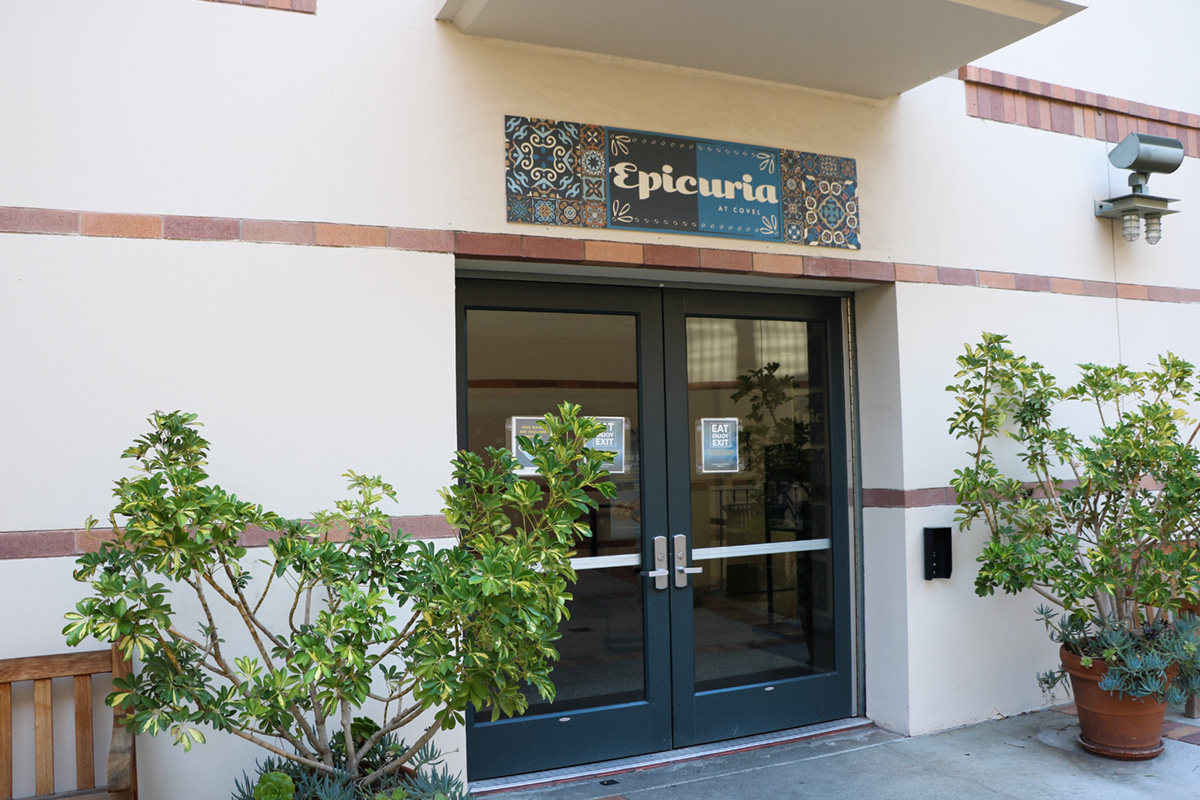
Pictured is Epicuria at Covel, a UCLA Dining Hall. The university administration recently announced it would no longer deny students with overdue housing charges access to dining facilities. (Daily Bruin file photo)
By Bockman Cheung
Feb. 1, 2024 8:29 p.m.
This post was updated Feb. 1 at 9:35 p.m.
The UCLA administration will stop denying students with overdue housing charges access to dining facilities in the 2024-2025 academic year.
In an emailed statement, a UCLA Business & Finance Solutions spokesperson said the dining restriction will be discontinued for overdue fees but that other measures will still be used to ensure consequences for nonpayment.
“In an effort to balance providing more flexibility to students while maintaining their accountability for fees owed, UCLA Business & Finance Solutions made the decision to discontinue the dining restriction practice for past due Housing charges as of Academic Year 2024-25,” they said in the statement.
According to the 2023-2024 housing contract, students who are delinquent in paying their charges are subject to dining account restrictions. However, John Luke Piepgras, the external vice president of Swipe Out Hunger, said the change will not impact current students because there is already a temporary hold on dining account restrictions.
Piepgras said the decision was reached through the advocacy of a coalition within the basic needs community, including the Student Coalition for Basic Needs, which launched last Spring. The Student Coalition for Basic Needs consists of student groups, including Swipe Out Hunger, that work on different basic needs initiatives.
The Community Service Commission works toward repealing dining account restrictions because they unfairly target students who are unable to pay, said Zephania Hartojo, the lead director of programming for CSC, adding that those who are financially disadvantaged are likely to face difficulties paying for food outside of dining halls.
“Dining account restrictions actually hurt communication with students rather than help it, because why would a student want to talk to the administrators that are withholding food from them?” Piepgras said.
Piepgras, who is also a fourth-year political science student, added that Swipe Out Hunger talked to different student groups on campus to get them to write letters of support and invited the office of Student Accounts administrators to the basic needs committee, where students had the opportunity to express their frustrations with the policy.
Although the coalition – which also includes the CalFresh Initiative, Bruin Dine and Bruin Shelter – had also held talks with the administration, Piepgras said it was uncertain how much progress they seemed to be making.
“We’ll really know what was going on in the background in our administrator communication, but by the end of the summer, after a year of trying to build support among administrators, we heard back that they were permanently repealing the policy,” he said.
Piepgras said the administrators’ inconsistent participation made the advocacy difficult. Hartojo, who is also a fourth-year public affairs student, added that there was not much the coalition could achieve without administration approval.
“At the end of the day, it’s admin that has to actually sign off on the change,” Hartojo said. “Students do as much as we can to gather personal stories, to gather data, to gather proof that it is possible to stop the dining account holds, but without admins to actually agree to doing it, there is only so much that we can do.”
Piepgras said one thing that helped the coalition convince administrators to lift the restrictions was a more general university project to restructure debt collection, which he said made it hard for administrators to argue they needed to maintain the restrictions.
Chia Ying Wong, the Community Service Commissioner of the Undergraduate Students Association Council, added that this particular policy change has fewer financial and logistical constraints than other ongoing projects at the CSC.
Surya Subbarao, a second-year computer science and mathematics student living on the Hill, said he was not aware of the policy change. However, he said he has seen efforts to improve food security by student groups through the meal swipe donation program and food banks.
Piepgras said he thinks even after the policy change, UCLA needs to invest its own resources toward food security rather than allocate funding from external stakeholders.
In an emailed statement, a UCLA Business & Finance Solutions spokesperson said a number of resources are available to students on and off campus facing basic needs insecurity, including those relating to transportation, food, financial wellness, technology and cooking education.
Wong, who is also a third-year education and social transformation and English student, added that she encourages students to try their best to contribute to basic needs programs wherever they can.
“A lot of the programs are based on the idea of mutual aid, which is that we are all part of the same community and we are all looking out for one another,” she said.



